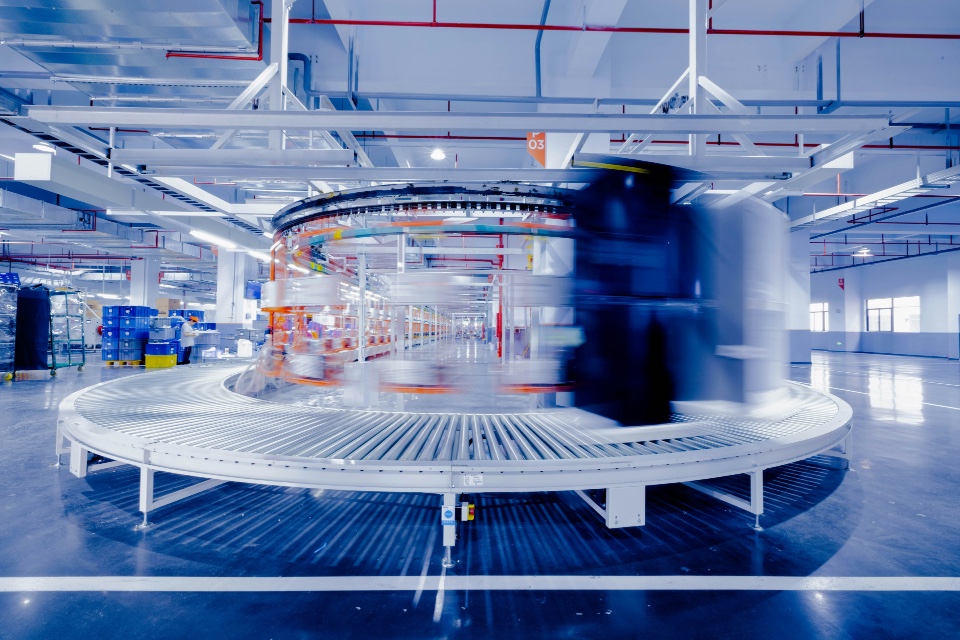Adapting one-size-fits-all solutions for each manufacturing sector can be extremely challenging, time-consuming, and costly because tools, processes, and technologies are unique to their own industries. Maintaining competitiveness in the manufacturing industry requires agility, efficiency, and responsiveness to changing customer demands, alongside compliance with safety regulations and delivering high quality products.
In many cases, an operational re-organisation and the adoption of automated workflows spanning from stock control and manufacturing through to customer engagement and accounts become necessary. However, this transition isn’t without its barriers and challenges.
Don Valentine (pictured), Commercial Director at Absoft, delves into the importance of investing in shop floor ERP technology, emphasising the need to replace legacy IT systems with a modern, fully integrated business system capable of supporting growth plans…
Modern day challenges
Despite manufacturing’s status as a dominant force in business, manufacturers face relentless challenges including high costs, rapid technological advancements, global trade issues, political instability, and supply chain risks. To remain competitive, they must operate at optimal efficiency, moving away from outdated paper-based workflows and basic Excel spreadsheets towards smart end-to-end ERP systems designed specifically for manufacturing needs. These systems should encompass front office and back office operations, including financials, sales, inventory, planning, and scheduling.
In many manufacturing settings, there also exists a significant reliance on supervisors stationed within work centres. These supervisors, often possessing decades of industry experience, serve as the linchpins of operational efficiency. However, a significant challenge arises when it comes to knowledge transfer: essential tasks and materials vital for product creation often reside solely within the minds of these seasoned supervisors. Despite the availability of sophisticated ERP systems, a substantial portion of this knowledge remains unrepresented within digital platforms and therefore at real risk of being lost.
Their expertise and insights, accrued over decades of hands-on involvement, represent a wealth of tacit knowledge vital for the smooth functioning of manufacturing processes. Yet, the reliance on individual expertise presents a precarious scenario, where vital information becomes susceptible to loss in the event of personnel changes or retirement. Addressing this challenge requires a concerted effort to bridge the gap between traditional practices and digital innovation, ensuring that critical knowledge is integrated into ERP systems to safeguard against disruptions and facilitate continuity in operations.
Seamless Integration for Enhanced Efficiency
Manufacturing businesses are increasingly migrating to the cloud for several reasons. Cloud-based ERP solutions enable manufacturers to automate workflows, gain an integrated view of all their processes on one platform, and reduce hardware investment needs. Additionally, these systems offer enhanced security and seamless integration with existing company systems, facilitating rapid business growth. Companies that operate in the manufacturing industry will find it to be the perfect option, providing them with the opportunity to reach new heights quickly.
Benefits of Manufacturing-Specific ERP Systems:
Manufacturing-specific ERP systems can seamlessly integrate with existing data systems, delivering numerous advantages. They enhance operational efficiency, providing real time insights and visibility across production processes. Moreover, they ensure timely delivery, bolster product quality, cut costs, and foster a collaborative culture that is conducive to innovation. In essence, these systems empower manufacturers to streamline their operations, drive innovation, and maintain a competitive edge as they move away from legacy systems, and a reliance on knowledge stored in the minds of experienced workers.
Conclusion
ERP systems tailored specifically to manufacturing provide powerful solutions to complex challenges enabling compliance with safety regulations, effective internal and external customer collaboration, dynamic product scheduling, data-driven decision making, and efficient inventory management.
As manufacturers embrace these solutions, they position themselves for growth, improved customer relationships and enhanced operational efficiency. And, in an industry fraught with challenges and hurdles, choosing the right ERP system provider can turn these challenges into opportunities, with the ERP provider serving as a strategic partner.







